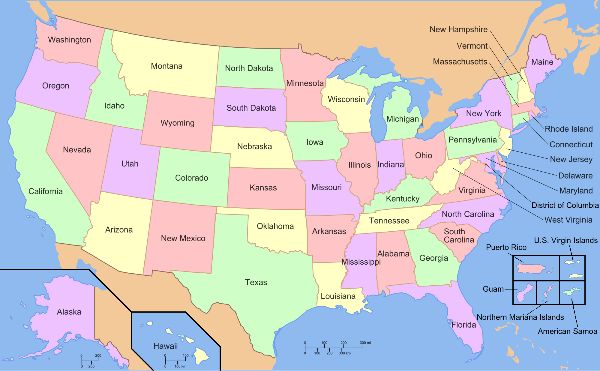Exploring the locksmith profession as your career option? Do you want to learn how to become a locksmith in South Dakota? If you live in South Dakota, including Sioux Falls, Rapid City, Aberdeen, Brookings, Watertown, Mitchell, Yankton, Pierre, Huron, and Spearfish, this guide is for you.
In this guide, you will learn about the following:
- How to get locksmith training in South Dakota?
- Finding the right locksmith schools in South Dakota
- How to become a locksmith in South Dakota?
- How to start your own locksmith business in South Dakota?

Should You Become a Locksmith in South Dakota?
Locksmiths make keys, repair locks, and install locks at homes, commercial establishments and vehicles. People seek help from locksmiths when they need to secure their homes or business, lose keys or need replacement keys for homes, cars or cabinets, etc.

Most locksmiths in South Dakota are self-employed individuals or family-owned businesses. You don’t need much investment to start a locksmith business. Your skill and any business address is enough to work as a locksmith. One can even start working from home or a mobile van equipped with locksmith tools.
You will, of course, need the locksmith tools and equipment such as key cutting machines and automotive key programming machines to get started.
In South Dakota, there is no formal regulation of the locksmith profession, meaning you are not required to obtain a locksmith license to practice. Once you acquire the necessary skills in key making and lock installation, you’re eligible for employment with locksmith companies throughout South Dakota or even for starting your very own locksmith enterprise within the state.
If you choose the path of self-employment or running an independent locksmith business, successful promotion becomes crucial. This entails advertising both online and within your local South Dakota market to reach your target clientele effectively.
It’s essential to recognize that the locksmith industry is highly competitive, not only in South Dakota but across the entire United States. Therefore, securing customers will be your primary challenge as you embark on your locksmith career in South Dakota or any other location nationwide.
Eligibility for Becoming Locksmith in South Dakota
Generally speaking, there is no specific requirement for becoming a locksmith. You just need to be eligible to start a business in the state of South Dakota.
- Age: 18 years or older (a major) and sound mind is a universal requirement.
- Education Degree: You don’t need any education degree or training certification to become a locksmith in South Dakota.
- Criminal History: Good moral and ethical background is a general requirement. A criminal record will not automatically deny you a chance to work as a locksmith.
- Key Skills: Mechanical and mathematical ability, knowledge of lock components, and ability to use locksmith tools to open & repair locks and make new keys.
- License and Certification: State-issued business license or a business license issued by your City Hall is generally required. Professional certifications recommended.
- Average Salary of Locksmiths: $50,000 – 60,0000 / year (approximate average in the US, as in April 2025, Source: Salary.com).
Do You Need a Locksmith License in South Dakota?
No, South Dakota does not have any regulations specifically for locksmiths. There is no locksmith licensing in the state of South Dakota (as in September 2023).
However, you are still required to meet the general requirements for operating any business. You should consult with the appropriate South Dakota departments or City Hall or local trade association detailed guidance on starting a locksmith business in South Dakota.
As in September 2023, you need locksmith licenses in 13 states (South Dakota is not one of them), and two counties in Florida (Hillsborough County & Miami-Dade County). In Nevada, locksmiths must obtain a permit from the sheriff of the county in which the locksmith works. New York City and Nassau County (NY) require locksmiths to be licensed within their jurisdiction.
How to Become a Locksmith in South Dakota?
- Get locksmith training (join a trade school)
- Work as an apprentice locksmith to gain work experience
- Get locksmith certifications for showing your qualifications (optional)
- Find work with local locksmith companies in South Dakota or start your own business
- Join a reputed trade association for regular industry knowledge and support
- Upgrade you skills and continue learning about the latest locks & security technology in home, automobile & business space
Step 1: Get Locksmith Training in South Dakota
Anyone looking to work as a locksmith in South Dakota should acquire knowledge of the trade.
Find a local locksmith school in your city in South Dakota. Check local phone directories, yellow pages and online directories for locksmith training courses near you. You can also seek guidance from your local friendly locksmith.
Locksmith schools are few in numbers, and not present in every city. You should expand your search and try to find a good locksmith school near you in South Dakota. If you cannot find a locksmith training program in South Dakota, expand your search to include other states.
You can find several reputed locksmith schools in the US that provide online courses. Enroll in an online locksmith course to get a formal training in the locksmith trade.
Locksmith certificate and diploma courses are available through community colleges, vocational schools, and locksmith trade associations.
As an alternative to locksmith training, an aspiring locksmith can also work as an apprenticeship under an experienced locksmith. Even if you learn the trade as an apprentice, you should consider obtaining locksmith certification from recognized entities.
- Basic Locksmithing Course
- Certified Licensed Locksmith (CLL)
- Certified Registered Locksmith (CRL)
- Certified Professional Locksmith (CPL)
- Certified Master Locksmith (CML)
Step 2: Get Employed as a Locksmith (or Apprentice)
Once you have successfully completed a locksmith training course, you should seek employment with reputed local locksmith companies and also with the maintenance departments of local businesses and organizations in South Dakota.
With certification to back your knowledge of the trade, it shouldn’t be difficult to get hired as a beginner locksmith in South Dakota. If you fail to find a locksmith technician job, you should look for an apprenticeship under an experienced locksmith to gain real hands-on experience.
Aspiring locksmiths can contact local locksmith businesses for apprenticeship positions. Apprenticeships are generally unpaid or with stipends, but provides you the technical, legal, and business aspects of the locksmith trade.
Though South Dakota does not require any licensing for locksmiths at the time of writing this article, you are advised to verify the current legal requirements and formalities.
Step 3: Start Your Own Locksmith Business
Many locksmiths enjoy a great career working with local locksmith companies and the maintenance departments of other organizations. However, some like to be their own bosses.
If you are entrepreneurial in nature, you can easily start your own locksmith business in South Dakota. You can have your own storefront lockshop or operate as a mobile locksmith, with a van fitted with equipment and spares as your workplace.
Many local locksmith businesses in South Dakota will have both, a lockshop and a locksmith van for mobile services. If you are short on the investment front, you should start working as a mobile locksmith by converting your existing car as your workshop.
Select your business structure: When looking to start a business, you need to decide whether you want to work as an individual / sole proprietorship, or create a partnership, LLC, or corporation.
A sole proprietorship is the easiest as you work as an individual. It requires no paperwork other than what you do as an individual. However, it also exposes you to business liabilities and claims.
An LLC keeps your business and personal assets separate. In case of any business claims, your personal assets will remain protected. A corporation provides even better protection against business liabilities, and is more suitable for large businesses.
Obtain business license: Whether you work from a store or a locksmith van, it is a general requirement that your register your business with the City Hall (and the state where required). You will also need to obtain work permits such as contractor licenses. Where your business name is different from your legal name (Doing Business As or Fictitious Name), you will need to register your business fictitious name too.
Insurance: General liability insurance is often a requirement for obtaining business licenses. Even if your state / county does not mandate any insurance, you should obtain adequate insurance cover to protect your business. A work gone wrong can attract hefty payments for damages. Insurance will ensure that you don’t go bust.
Step 4: Join Locksmith Trade Association
Once you get your locksmith license, or start working as a locksmith, you should join any prominent trade association in your state. It will help you stay informed with developments in the sector. You can also find help with several other issues through your trade association.
Being a member of a trade association will help with expanding business, building customer base, continued education, legislative representation, industry bonding, insurance options, and more.
Step 5: Continue Learning
In the ever-evolving security hardware industry, locksmiths must remain dedicated to ongoing learning to effectively handle the latest locks and vehicle keys. It’s imperative to continuously expand their knowledge base regarding emerging security systems and innovative lock technologies.
Success in the locksmith profession hinges on staying abreast of the latest developments in lock security. As a professional locksmith, active participation in industry seminars and events is crucial. Furthermore, locksmiths should actively seize the educational opportunities provided by lock manufacturers, trade associations, and locksmithing schools to ensure they remain at the forefront of their field.
In conclusion, this wraps up the essentials of becoming a locksmith in South Dakota. It’s important to remember to regularly verify the applicable laws, including new legislations and amendments, as well as compliance requirements relevant to the locksmith industry in South Dakota to ensure continued adherence to industry standards and regulations.
